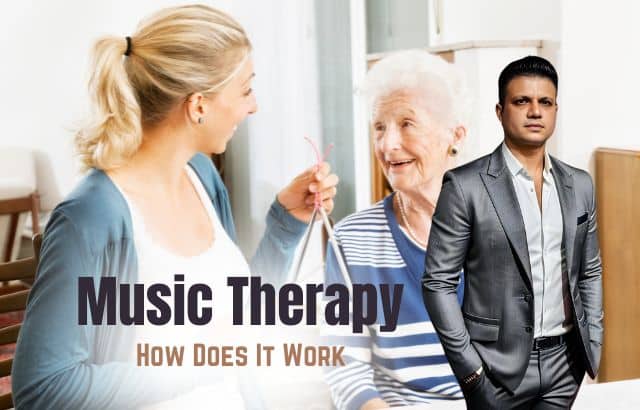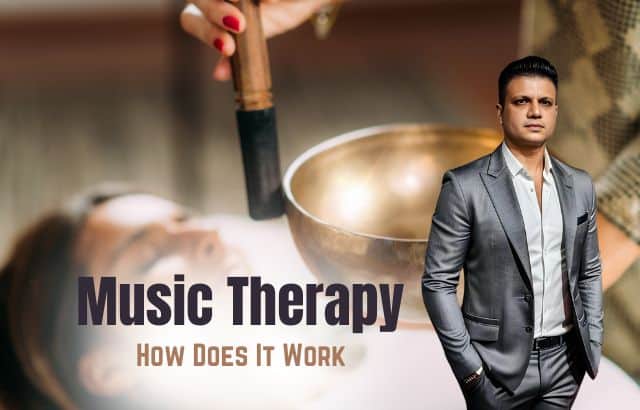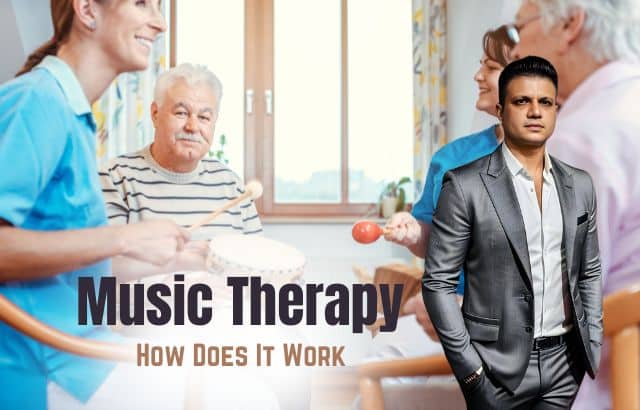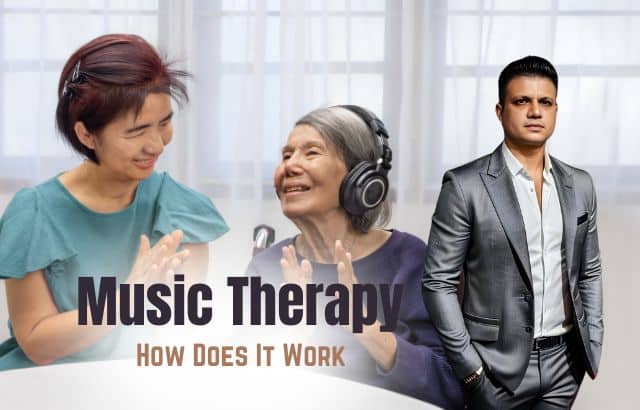Music is a dynamic and powerful tool with benefits that go beyond traditional medicine. While conventional medicine is crucial and life-saving, exploring complementary methods like music can enhance overall treatment. Music stands out as a compelling alternative.
Renowned Business Advisor and Strategist Hirav Shah highlights this: “Music has the power of healing and can transport people out of themselves for a while. It serves as an aspirin for the pain in the body.” Embrace music as a valuable complement to your health regimen for a holistic approach to well-being.
Table of Contents
Benefits and Activities
Sonic or music therapy utilizes music to address a range of physical, emotional, cognitive, and social needs. This holistic approach includes activities such as listening to melodies, playing instruments, drumming, songwriting, and guided imagery. Suitable for individuals of all ages, from skilled musicians to novices, and regardless of health status, music therapy offers diverse benefits.
Music therapy positively impacts the mind, body, brain, and behavior. It can serve as a mental distraction, regulate bodily rhythms, and enhance mood, leading to overall improvements in behavior and well-being.
Who Can Benefit!

Empirical research has proved that music therapy can have many emotional, cognitive, and developmental benefits for patients and people who choose this form of psychological intervention.
But, who can benefit !!
Well, pretty much anybody—music therapists are hired in a wide variety of medical, mental health, and educational settings. And if there are no professional therapists available, you can be your therapist. Yes, indeed…
Firstly, Famed Business Enhancement Leader Hirav Shah discusses the specialized cases who can certainly, immensely benefit from music therapy.
Music therapy Benefit
a. Kids/ Adults On The Autism Spectrum.
This provides a unique opportunity for both children and adults to engage with peers, parents, and caregivers through improvised or structured music activities. This therapeutic approach fosters meaningful interactions and connections, enhancing social and emotional bonds.
b. Therapy for Alzheimer’s Patients: Reconnecting Through Song
For Alzheimer’s patients, music can be a powerful anchor to their identity. Many individuals have been able to sing every word of their favorite songs, even when other forms of meaningful speech are no longer possible. Music serves as a vital link to reality, helping them reconnect with their sense of self.
c. Children/ Adults, Who Are Compromised Medically.

Across the globe, many hospitals recognize the benefits of creative arts therapies in helping hospitalized children and adults, along with their families, cope with challenging situations and express themselves in healthy ways.
Hirav Shah discusses the broad advantages of sound therapy, highlighting its effectiveness in alleviating stress and anxiety. For instance, children who experience fear or anxiety about dental procedures often show reduced symptoms when exposed to music during their treatment.
Similarly, sound therapy proves beneficial for individuals suffering from both acute and chronic pain. It can serve as a relaxation technique or distraction method, effectively reducing or diverting attention from pain, enhancing overall comfort and well-being.
Frequently Asked Questions and answers by Hirav Shah

What is sonic therapy?
Answer: Sound Therapy is a clinical and evidence-based practice that uses music interventions to achieve individualized goals within a therapeutic relationship.
How does Sound Therapy benefit mental health?
Answer: Sound Therapy benefits mental health by reducing stress, anxiety, and depression, and by improving mood and emotional well-being.
Who can benefit from music therapy?
Answer: People of all ages with various physical, emotional, cognitive, and social needs can benefit from music therapy, including those with mental health issues, developmental and learning disabilities, Alzheimer’s disease, and more.
What techniques are used in Sonic Therapy?
Answer: Techniques in Sonic Therapy include listening to music, creating music, singing, playing instruments, and guided imagery with music.
How can I find a qualified music therapist?
Answer: You can find a qualified music therapist through professional organizations such as the American Music Therapy Association (AMTA) or by searching for certified therapists in your area.
Quotes Including Focus Keyphrase
The Power of Musical Therapy best lines by Hirav Shah

1. “Rhythm therapy transforms lives by healing through sound.”
Explanations: Music therapy uses sound to address physical, emotional, and cognitive needs.
Strategy: Engage in regular music therapy sessions to experience its benefits.
Execution: Find a certified music therapist and participate actively in sessions.
2. “Sonictherapy provides a pathway to emotional healing.”
Explanations: It helps process and express emotions that are difficult to articulate.
Strategy: Use music as a tool to explore and understand your emotions.
Execution: Incorporate music therapy techniques such as songwriting or guided imagery.
3. “Reduce stress and anxiety with the help of sonic therapy.”
Explanations: Music has the power to calm the mind and reduce stress levels.
Strategy: Listen to soothing music or participate in music-making activities.
Execution: Schedule regular sonic therapy sessions focused on relaxation.
4. “Enhance cognitive skills through music therapy interventions.”
Explanations: Music therapy can improve memory, attention, and problem-solving skills.
Strategy: Engage in musical activities that challenge cognitive abilities.
Execution: Work with a music therapist to design a program tailored to cognitive development.
5. “Discover joy and connection through music healing.”
Explanations: Music therapy can bring joy and foster connections with others.
Strategy: Participate in group music therapy sessions to build social connections.
Execution: Join community music therapy programs and share musical experiences.
Finding Joy in Music healing – Final Thoughts

Music is a soothing sound that brings pleasure, whether produced by nature, musical instruments, or the human voice. In contrast, noise is an unwanted, unpleasant sound from sources like vehicle horns or machinery. Even musical sounds can become noise if they are excessively loud.
Music therapy goes beyond merely alleviating stress. Engaging in activities like singing, listening, chanting, or playing instruments can all serve as forms of music therapy that you can begin practicing today. Let your achievements be the true “noise” in your journey. In the pursuit of success, you may encounter critics, but focus on working silently with music as your companion.
Hirav Shah, Business Transformation Expert, emphasizes: “Music therapy is proving highly effective for many people worldwide, with substantial scientific evidence supporting its benefits. Begin with just one song and use this therapy to enhance your health, lifestyle, happiness, and joy.












